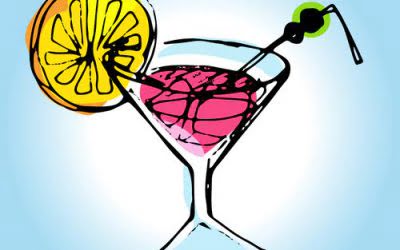However, similarly to the in vitro studies described above, at 2 and 5 hours post-binge the numbers of circulating monocytes were reduced and levels of antiinflammatory IL-10 levels were increased (Afshar, Richards et al. 2014). In addition, alcohol significantly inhibits PMN phagocytic activity as well as the production or activity of several molecules (e.g., superoxide or elastase) that are involved in the PMNs’ bactericidal activity (Stoltz et al. 1999), so that overall bactericidal activity ultimately is reduced. Monocytes and macrophages are leukocytes with a single-lobed nucleus that also act as phagocytes and which therefore also are called mononuclear phagocytes. Monocytes are an immature form of these cells that circulate in the blood until they are alerted to the presence of a pathogen in a particular tissue.
- They also fit with earlier studies showing that the immune system of heavy drinkers might be less vigilant against cancer.
- This alcohol-mediated dendritic cell dysfunction prevents the organism from generating virus-specific adaptive immune responses involving CD4+ and CD8+ lymphocytes, which may contribute to the acquisition and persistence of hepatitis C infection (Siu et al. 2009).
- The adaptive immune system can be further subdivided into cell-mediated immunity and humoral immunity.
- 4Expression of TNF-α and IL-1β requires the actions of a protein called nuclear factor (NF)- B.
“When you’re feeling run down or like you might get sick, you want to be well hydrated so that all the cells in your body have enough fluid in them and can work really well,” Favini says. With each alcohol withdrawal episode, the brain and nervous system becomes more sensitised and the resulting side effects become more pronounced. It usually takes the liver about an hour to remove one unit of alcohol from the body. This will leave you feeling badly dehydrated in the morning, which may cause a severe headache.
Immune System
The study researchers, led by Ilhem Messaoudi of the School of Medicine at the University of California, Riverside, say their research may help lead to a better understanding of how the immune system works, and how to improve its ability to respond to vaccines and infections. Although alcohol can act as a mild sedative, excessive or late-night drinkers often experience insomnia. Alcohol also prevents REM sleep, which aids in cognitive processes, memory and learning. Besides that, prolonged sleep impairment can weaken the overall immune system. Not only that, but alcohol has a prominent effect on blood sugar levels and can hurt the body’s sensitivity to insulin. Alcohol disrupts the brain’s communication pathways, which result in impaired speech, sudden changes in behavior or mood, impaired coordination and poor decision-making.

In addition, alcohol interferes with TNF expression by inhibiting the normal processing of newly produced TNF that is necessary for normal TNF functioning (Zhao et al. 2003). Monocytes express Toll-like receptor (TLR) 4, the PRR that is often responsible for recognizing LPS on the surface of Gram-negative bacteria. After binding to LPS, monocytes are activated and mature into macrophages that travel to the site of infection to secrete important cytokines for the inflammatory response.
Sexual and reproductive health
Oftentimes, we aren’t thinking about how much or how often we consume alcohol or its effects on the body. But drinking can weaken this system, leaving us vulnerable to infections and diseases. They do this by destroying the cells in your body that have been taken over by viruses. When you have an illness or get a vaccine, your body’s B cells create antibodies. These antibodies attack invaders and prevent an infection from spreading further.
For those who have a risk factor for COVID-19, like heart disease or diabetes, he recommends drinking even less. According to the Cleveland Clinic, once you take a sip of alcohol, your body prioritizes breaking down alcohol over several other bodily functions. The body doesn’t have a way to store alcohol like it does with carbohydrates and fats, so it has to immediately send it to the liver, where it’s metabolized. “With COVID-19, alcohol is likely to interfere with an individual’s ability to clear SARS-CoV-2 and cause people to suffer worse outcomes, including ARDS, which commonly results in death,” Edelman said.
How Alcohol Weakens Your Immune System
In addition, chronic alcohol can decrease the number of B-cells that produce an antibody type called IgA5 in one of the layers of mucous membranes (i.e., the lamina propria), which is indicative of altered mucosal immunity (Lopez et al. 1994). Finally, alcohol inhibits the responsiveness of B-cells at certain developmental stages (i.e., blasts, which are the precursors to the antibody-secreting plasma cells) to various cytokines, particularly to IL-2 and IL-4. However, alcohol may have a dual effect on B-cell does alcohol suppress immune system function because some studies have reported that B-cells also could be activated in alcohol-consuming people (Drew et al. 1984). Vitamin E is one of the most effective antioxidants and its deficiency exacerbates freeradical damage impairing the ability of T cells to respond to pathogenic challenge (Mocchegiani, Costarelli et al. 2014). Similarly, vitamin C, also an antioxidant, is important for phagocytic activity of neutrophils and monocytes, and enhances T cell responses (Strohle and Hahn 2009).

However, alcoholic patients frequently have abnormally low levels of complement in the blood. In addition, animal studies have indicated that acute alcohol intoxication can decrease complement activation in response to tissue injury resulting from disruptions in blood supply (i.e., ischemic injury). In contrast, chronic alcohol intake can activate the complement response (Roychowdhury et al. 2009), both by inducing the biochemical pathways that lead to activation of the complement cascade and by suppressing processes to terminate or regulate the cascade (Bykov et al. 2007). The induced innate humoral response plays a critical role in clearing or containing infection while an adaptive response develops.
In summary, several in vitro and in vivo studies demonstrate that ethanol modulates the function of innate immune cells (monocytes and DCs) in a dose and time dependent manner (Figure 1). Acute high dose exposures inhibit whereas long-term treatments stimulate proinflammatory cytokine production. In addition, in vivo consumption of moderate amounts enhances phagocytosis and reduces inflammatory cytokine production whereas chronic consumption of large doses inhibits phagocytosis and production of growth factors. This defect was rescued when cultures were treated with the Rho kinase inhibitor, Y27632 indicative that ethanol reduced efferocytosis through the induction of Rho kinase activity in a dose-dependent manner (Boe, Richens et al. 2010).
- Within the GI tract, alcohol exposure can also alter the number and abundance of microorganisms present within the microbiome, all of which play an important role in normal GI function.
- This is important for activating the cells of the adaptive immune response.
- Alcohol has a broad range of effects on the structural, cellular, and humoral components of the immune system.
- Kindling is a problem that can occur following a number of episodes of withdrawal from alcohol.
- Once in the system, alcohol is broken down into a harmful chemical that damages the DNA.
Alcohol abuse suppresses multiple arms of the immune response, leading to an increased risk of infections. The course and resolution of both bacterial and viral infections is severely impaired in alcohol-abusing patients, resulting in greater patient morbidity and mortality. Multiple mechanisms have been identified underlying the immunosuppressive effects of alcohol. Analyses of alcohol’s diverse effects on various components of the immune system provide insight into the factors that lead to a greater risk of infection in the alcohol-abusing population. Some of these mechanisms are directly related to the pathology found in people with infections such as HIV/AIDS, tuberculosis, hepatitis, and pneumonia who continue to use and abuse alcohol. It is also critical to take into consideration that the effects of ethanol on immune function in vivo could involve the actions of its primary metabolite, acetaldehyde.
If you do choose to imbibe, it’s best to avoid binge drinking and stick to CDC Guidelines — consuming no more than one drink per day for women or up to two drinks per day for men. — Some research suggests no amount of alcohol is good for you, while other studies say moderate drinking may actually boost immune function more than teetotalling. Before you decide whether to pour a glass, it’s worth understanding how alcohol influences the immune system — as well as taking the time to reflect on your own relationship with alcohol.
